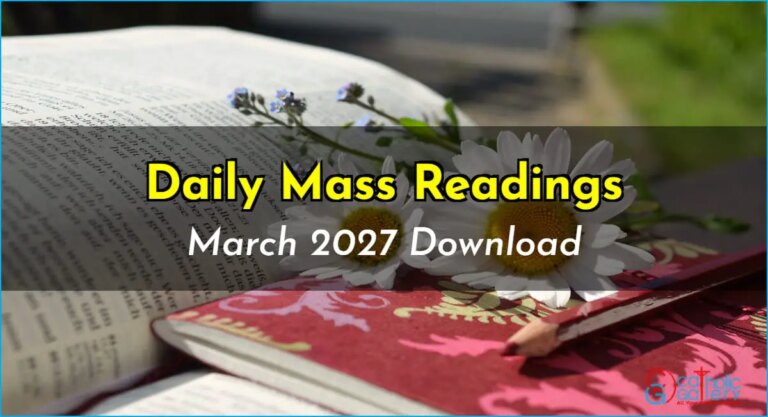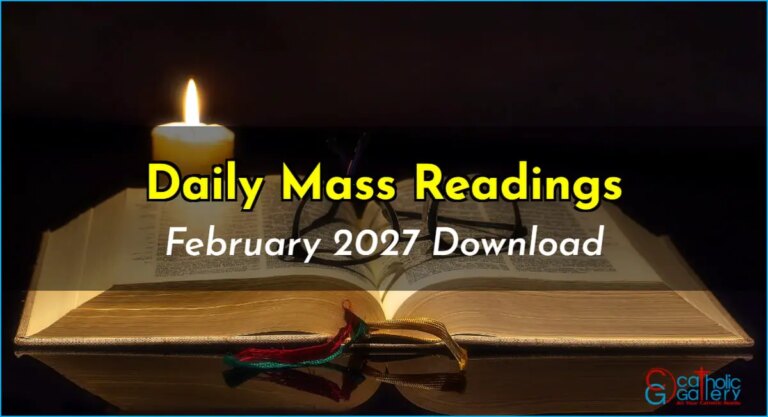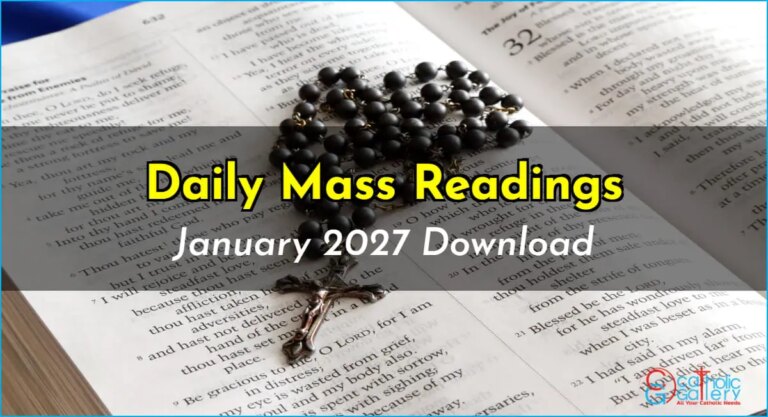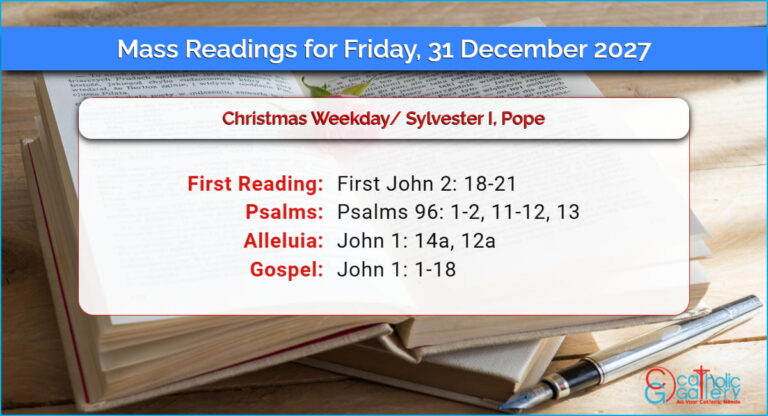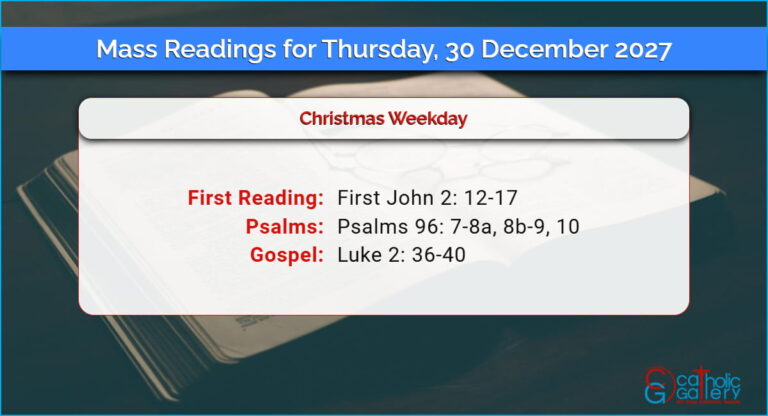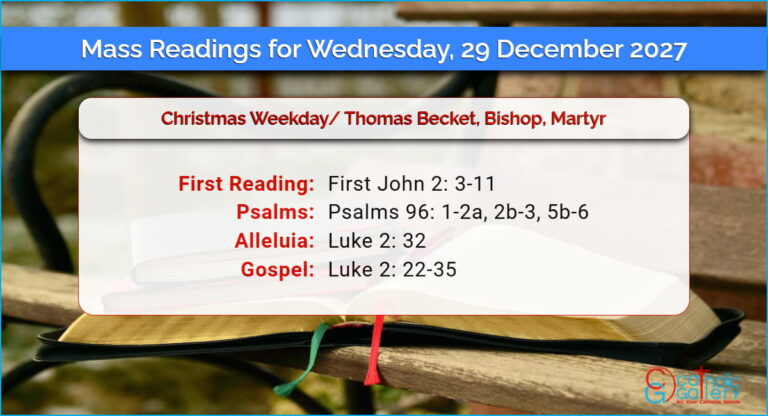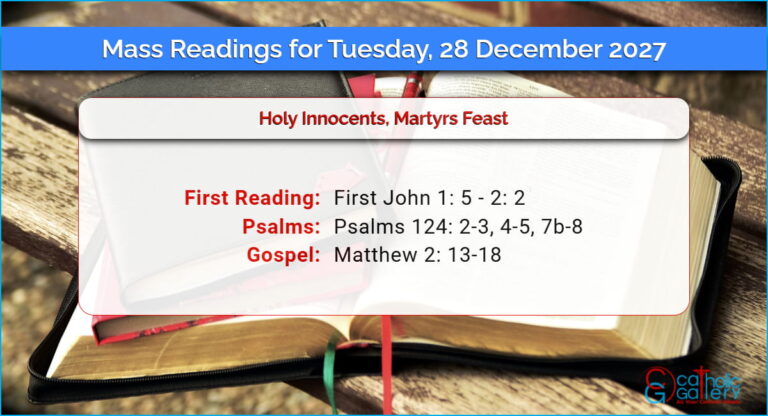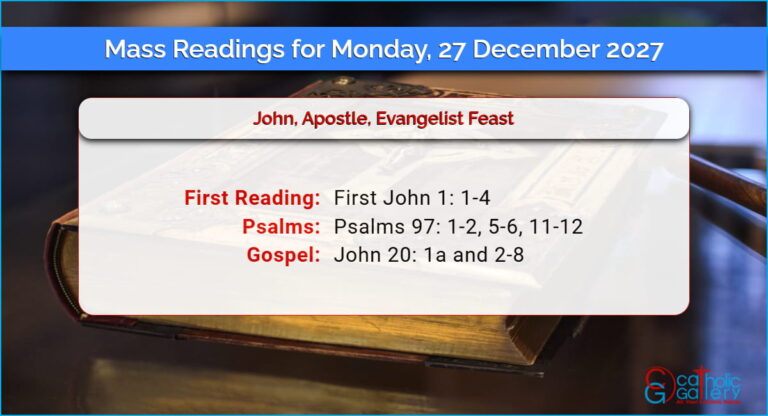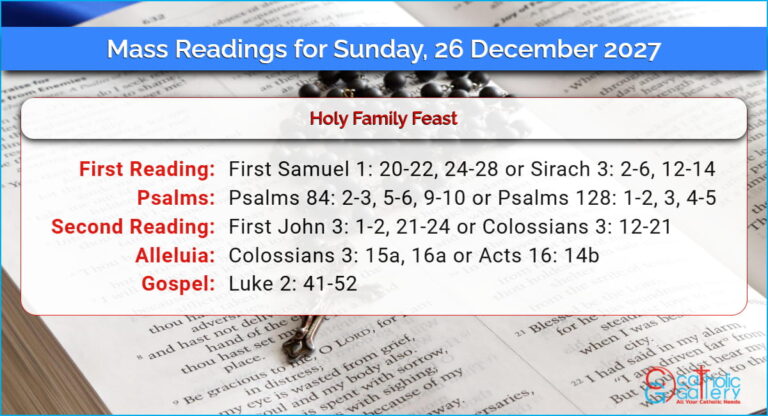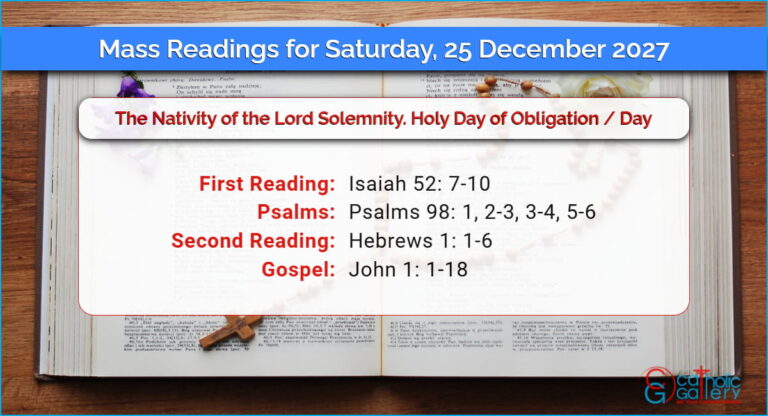Responsorial Psalm: Psalms 42: 2, 3; 43: 3, 4
Verse Before the Gospel: Psalms 130: 5, 7
Gospel: Luke 4: 24-30
Responsorial Psalm: Psalms 25: 4-5ab, 6 and 7bc, 8-9
Verse Before the Gospel: Joel 2: 12-13
Gospel: Matthew 18: 21-35
Responsorial Psalm: Psalms 147: 12-13, 15-16, 19-20
Verse Before the Gospel: John 6: 63c, 68c
Gospel: Matthew 5: 17-19
Responsorial Psalm: Psalms 95: 1-2, 6-7, 8-9
Verse Before the Gospel: Joel 2: 12-13
Gospel: Luke 11: 14-23
Responsorial Psalm: Psalms 81: 6c-8a, 8bc-9, 10-11ab, 14 and 17
Verse Before the Gospel: Matthew 4: 17
Gospel: Mark 12: 28-34
Responsorial Psalm: Psalms 51: 3-4, 18-19, 20-21ab
Verse Before the Gospel: Psalms 95: 8
Gospel: Luke 18: 9-14
Responsorial Psalm: Psalms 23: 1-3a, 3b-4, 5, 6
Second Reading: Ephesians 5: 8-14
Verse Before the Gospel: John 8: 12
Gospel: John 9: 1-41
Responsorial Psalm: Psalms 137: 1-2, 3, 4-5, 6
Second Reading: Ephesians 2: 4-10
Verse Before the Gospel: John 3: 16
Gospel: John 3: 14-21
Responsorial Psalm: Psalms 30: 2 and 4, 5-6, 11-12a and 13b
Verse Before the Gospel: Amos 5: 14
Gospel: John 4: 43-54
Responsorial Psalm: Psalms 46: 2-3, 5-6, 8-9
Verse Before the Gospel: Psalms 51: 12a, 14a
Gospel: John 5: 1-16
Responsorial Psalm: Psalms 145: 8-9, 13cd-14, 17-18
Verse Before the Gospel: John 11: 25a, 26
Gospel: John 5: 17-30
Responsorial Psalm: Psalms 106: 19-20, 21-22, 23
Verse Before the Gospel: John 3: 16
Gospel: John 5: 31-47
Responsorial Psalm: Psalms 34: 17-18, 19-20, 21 and 23
Verse Before the Gospel: Matthew 4: 4b
Gospel: John 7: 1-2, 10, 25-30
Responsorial Psalm: Psalms 7: 2-3, 9bc-10, 11-12
Verse Before the Gospel: Luke 8: 15
Gospel: John 7: 40-53
Responsorial Psalm: Psalms 130: 1-2, 3-4, 5-6, 7-8
Second Reading: Romans 8: 8-11
Verse Before the Gospel: John 11: 25a, 26
Gospel: John 11: 1-45
Responsorial Psalm: Psalms 51: 3-4, 12-13, 14-15
Second Reading: Hebrews 5: 7-9
Verse Before the Gospel: John 12: 26
Gospel: John 12: 20-33
Responsorial Psalm: Psalms 23: 1-3a, 3b-4, 5, 6
Verse Before the Gospel: Ezekiel 33: 11
Gospel: John 8: 1-11
Responsorial Psalm: Psalms 102: 2-3, 16-18, 19-21
Gospel: John 8: 21-30
Responsorial Psalm: Psalms 105: 4-5, 6-7, 8-9
Verse Before the Gospel: Psalms 95: 8
Gospel: John 8: 51-59
Responsorial Psalm: Psalms 89: 2-3, 4-5, 27 and 29
Second Reading: Romans 4: 13, 16-18, 22
Verse Before the Gospel: Psalms 84: 5
Gospel: Matthew 1: 16, 18-21, 24 or Luke 2: 41-51a
Responsorial Psalm: Jeremiah 31: 10, 11-12, 13
Verse Before the Gospel: Ezekiel 18: 31
Gospel: John 11: 45-56
First Reading: Isaiah 50: 4-7
Responsorial Psalm: Psalms 22: 8-9, 17-18, 19-20, 23-24
Second Reading: Philippians 2: 6-11
Verse Before the Gospel: Philippians 2: 8-9
Gospel: Mark 14: 1 – 15: 47
Responsorial Psalm: Psalms 71: 1-2, 3-4a, 5ab-6ab, 15 and 17
Gospel: John 13: 21-33, 36-38
Responsorial Psalm: Psalms 69: 8-10, 21-22, 31 and 33-34
Gospel: Matthew 26: 14-25
Responsorial Psalm: Psalms 116: 12-13, 15-16bc, 17-18
Second Reading: First Corinthians 11: 23-26
Verse Before the Gospel: John 13: 34
Gospel: John 13: 1-15
Responsorial Psalm: Psalms 31: 2, 6, 12-13, 15-16, 17, 25
Second Reading: Hebrews 4: 14-16; 5: 7-9
Verse Before the Gospel: Philippians 2: 8-9
Gospel: John 18: 1 – 19: 42
Responsorial Psalm: Psalms 104: 1-2, 5-6, 10, 12, 13-14, 24, 35 or Psalms 33: 4-5, 6-7, 12-13, 20 and 22
Second Reading: Genesis 22: 1-18 or 22: 1-2, 9a, 10-13, 15-18
Responsorial Psalm: Psalms 16: 5, 8, 9-10, 11
Third Reading: Exodus 14: 15 – 15: 1
Responsorial Psalm: Exodus 15: 1-2, 3-4, 5-6, 17-18
Fourth Reading: Isaiah 54: 5-14
Responsorial Psalm: Psalms 30: 2, 4, 5-6, 11-12, 13
Fifth Reading: Isaiah 55: 1-11
Responsorial Psalm: Isaiah 12: 2-3, 4, 5-6
Sixth Reading: Baruch 3: 9-15, 32 – 4: 4
Responsorial Psalm: Psalms 19: 8, 9, 10, 11
Seventh Reading: Ezekiel 36: 16-17a, 18-28
Responsorial Psalm: Psalms 42: 3, 5; 43: 3, 4 or Isaiah 12: 2-3, 4bcd, 5-6 or Psalms 51:12-13, 14-15, 18-19
Epistle Reading: Romans 6: 3-11
Responsorial Psalm: Psalms 118: 1-2, 16-17, 22-23
Gospel: Mark 16: 1-7
Responsorial Psalm: Psalms 118: 1-2, 16-17, 22-23
Second Reading: Colossians 3: 1-4 or First Corinthians 5: 6b-8
Alleluia: First Corinthians 5: 7b-8a
Gospel: John 20: 1-9 or Matthew 28: 1-10 or, at an afternoon or evening Mass, Luke 24: 13-35
Responsorial Psalm: Psalms 16: 1-2a and 5, 7-8, 9-10, 11
Alleluia: Psalms 118: 24
Gospel: Matthew 28: 8-15
Responsorial Psalm: Psalms 33: 4-5, 18-19, 20 and 22
Alleluia: Psalms 118: 24
Gospel: John 20: 11-18
Responsorial Psalm: Psalms 105: 1-2, 3-4, 6-7, 8-9
Alleluia: Psalms 118: 24
Gospel: Luke 24: 13-35

